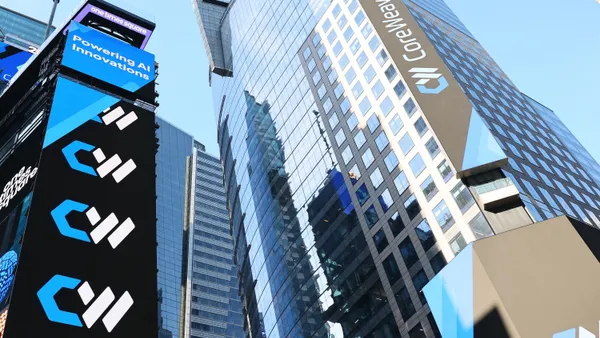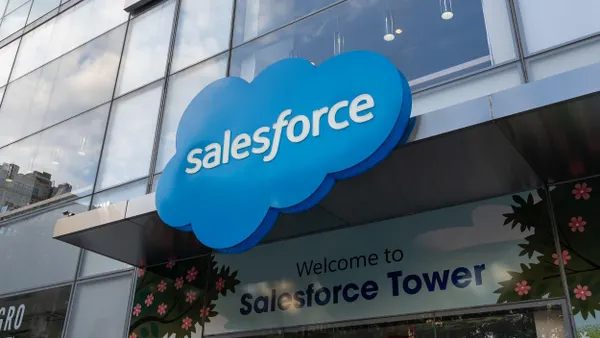Dive Brief:
- EMC Corp. shareholders have approved a merger with Dell, EMC announced Tuesday.
- Approximately 98% of EMC shareholders voted in favor of the merger, the company said. EMC will file the final results later this week.
- The $60 billion merger between the two companies is expected to close in October, following anticipated regulatory approval from China.
Dive Insight:
"Today’s resoundingly favorable shareholder vote clearly supports our view that combining Dell and EMC will create a powerhouse in the technology industry," EMC Chairman and CEO Joe Tucci said in a statement. "The board and I care very deeply about, and have worked diligently to represent, what we believe is the best outcome for all stakeholders."
Leading up to the vote, EMC on Monday reported a year-over-year quarterly profit increase of 19%.
As the companies have worked to become Dell Technologies, the proposed rebrand following the merger, they have streamlined their business offerings and leadership teams. In January, EMC brought in ML Krakauer as its new CIO. In April, reports surfaced that EMC was looking to sell Documentum, while Dell sold its software assets Sonicwall and Quest, which could help reduce the debt burden of the deal.
And with improved debt market conditions, Dell may only need to borrow $43 billion, rather than the $49.5 billion the company said it would require to buy EMC.
The merger creates an industry giant that will post fierce competition to other solutions providers. In 2015, Hewlett Packard Enterprise dominated cloud IT infrastructure, holding 15.7% of the market. Dell and EMC followed close behind with 10.6% and 7.6%, respectively. Once the merger is complete, Dell/EMC is poised to overtake HPE in market share. Already, HPE and Dell are gearing up for an R&D showdown, with Dell CEO Michael Dell pledging $4.5 billion toward R&D in the coming year—nearly twice as much as HPE did last year.
Dell was responding to recent comments from HPE CEO Meg Whitman, who speculated that the costs associated with the Dell/EMC merger will make it difficult for the new company to invest much in R&D.















